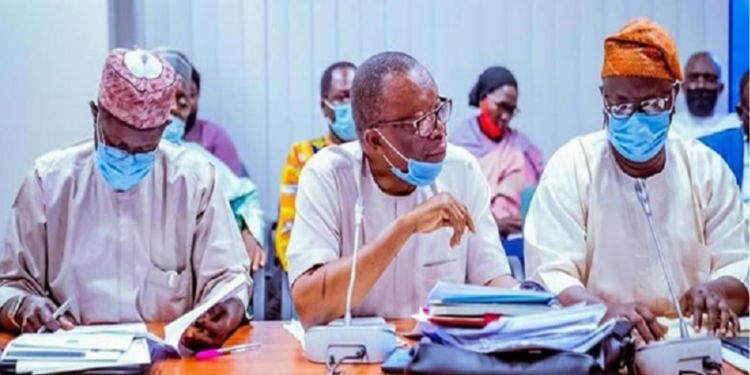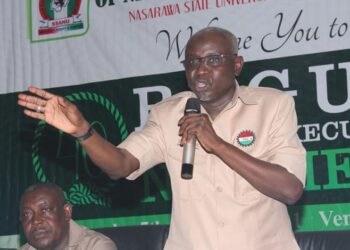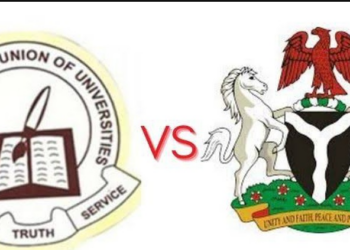The Academic Staff Union of Universities (ASUU) has announced its decision to no longer accept the continuous non-reinstatement or non-reconstitution of governing councils in public universities.
This decision came during the National Executive Council (NEC) meeting at Obafemi Awolowo University in Ile-Ife held on May 11 and May 12.
The ASUU President, Prof. Emmanuel Osodeke, conveyed the union’s resolutions in a statement to the press in Abuja on Tuesday.
The Council’s absence contributes to ongoing illegalities
Osodeke said the absence of these councils is contributing to the ongoing illegalities and violations of autonomy in public universities.
He highlighted the NEC’s discussions on engaging with the federal and state governments to enhance the global stature and competitiveness of Nigeria’s public universities.
“The NEC condemns in strong terms the apparent reluctance of federal and state governments to resolve all outstanding issues with the union,” Osodeke stated.
He announced that the NEC would reconvene two weeks before the meeting date to assess the situation and determine necessary actions.
Addressing the deteriorating condition of academic staff
Osodeke also detailed the dire living and working conditions in universities and the nation, referencing alarming reports of failed government promises that led to the February–October 2022 strike.
He noted the lack of serious efforts to address these deteriorating conditions, which have resulted in numerous academic deaths and severe health issues among scholars due to stress and insecurity.
Renegotiation of FGN/ASUU 2009 agreement
Addressing the renegotiation of the FGN/ASUU 2009 agreement, Osodeke urged President Bola Tinubu’s administration to initiate the process of reviewing and signing the Nimi Briggs-led renegotiated draft agreement, marking it as a sign of goodwill and hope for the nation’s public universities.
On the issue of reinstating governing councils, he criticized the continuous undermining of public university autonomy, describing the illegal dissolution of councils by President Tinubu and various state governments.
This, he said, has led to rampant unauthorized actions by university administrations and outgoing vice-chancellors, who often bypass the proper channels to make appointments and handle university finances, thereby increasing corruption.
Universities need to manage their financial affairs
Osodeke reiterated ASUU’s opposition to the Integrated Personnel and Payroll Information System (IPPIS) and urged the government to allow universities to manage their financial affairs under the council’s supervision.
He also rejected the National Universities Commission’s (NUC)- imposed Core Curriculum Minimum Academic Standard (CCMAS), emphasizing that university Senates should have the authority to manage academic programs and confer degrees.
Finally, Osodeke declared that despite a decade of engagement, these critical issues remain largely unaddressed by the owners of public universities—the Federal and State Governments.
























